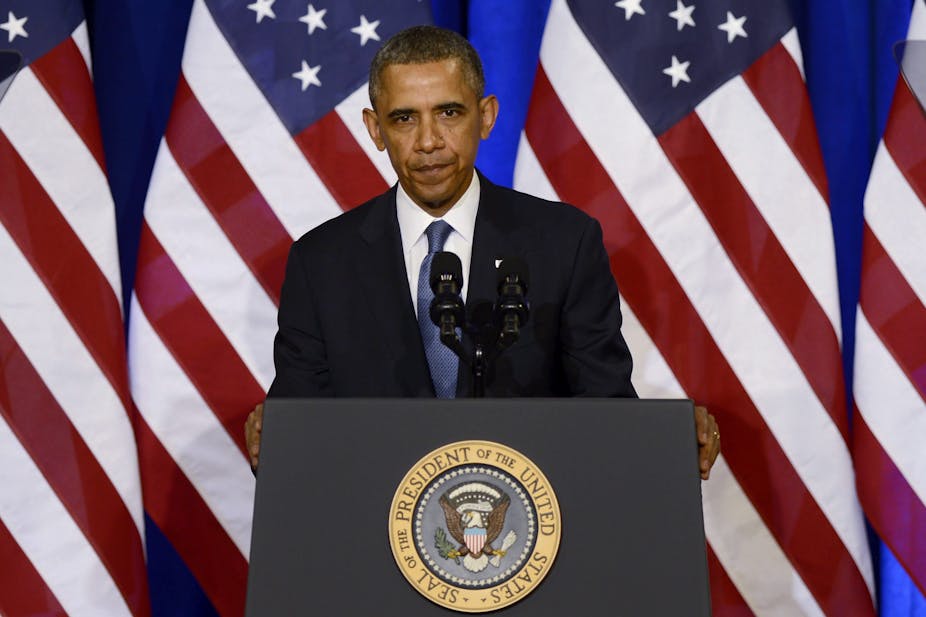All eyes were on US president Barack Obama when he announced his plan to reform the National Security Agency (NSA) and its ability to collect phone metadata. Three main changes will be pursued: the government can no longer hold bulk phone data collected by the NSA; there will be more judicial oversight of the actions of the NSA; and the US government will no longer spy on the leaders and governments of its allies.
The proposed reforms have proven to be a disappointing outcome for those who helped uncover the secret operations of the NSA. WikiLeaks founder Julian Assange referred to the reforms as unsubstantial. Glenn Greenwald, the journalist who published the leaks by former NSA contractor Edward Snowden, called the announcement a “publicity stunt”.
While the announcement itself may have introduced fairly minor changes, it was still significant. It was first time the leader of the free world curtailed his own powers in response to the leaks of someone the state deemed a “criminal fugitive”.
In this way, Obama’s announcement to reform the NSA marks the start of a new political reality: one in which leaks may play a larger part in public life.
A paradoxical US response
Despite this, the administration’s response to the NSA leaks has been paradoxical. On one hand, Obama reminded us that leaks are a dangerous threat to security and stability. On the other, the leaks are leading to changes to the “secret” work of government.
Obama’s announcement was in no way an apology for the spying by an overpowered NSA. He instead opened his announcement with a poetic romp through history, which he used to defend spying in the post-9/11 era.
Obama played down the role of the leaks in his announcement, saying that leaks have “often shed more heat than light”. He characterised Snowden as a “lone” vigilante, endangering the security of the nation and the lives of ordinary people.
Even so, that position is proving difficult to maintain.

According to Obama’s announcement, the US government continues to view mass surveillance as acceptable as long as it has sufficient oversight and the right “checks and balances”. But in the case of the NSA, these “checks and balances” were only possible because of Snowden’s leaks.
It is difficult to imagine that any reforms to the NSA would have been made if not for these leaks. There is no doubt that Snowden and his leaks have been the catalyst for reform.
Leaks and public dialogue
While the government’s desire to insulate itself from the threat of further leaks is unsurprising, leaks are now part of the political landscape. Leakers and leaks are not going away.
Despite its limitations, Obama’s reform of the NSA reinforces the importance of exposing power to public scrutiny. Even if we agree that the work of government sometimes requires secrecy, Snowden has triggered an important public discussion about privacy, state secrets, public surveillance and the public interest.
Rather than condemning the recklessness of Snowden in the hope that this will protect the state against similar scrutiny in future, the NSA leaks offer governments an opportunity to rethink the way that leaks are integrated into public dialogue.
If we discuss leaks in terms of their content with reference to the public interest obligations of governments, we have a better chance of navigating the difficult space between state secrets and the public’s right to know.
While we will continue to disagree about what is and is not in the public’s interest, the work of Edward Snowden opened up a new and important dialogue about the secret amplification of state surveillance.
It is in our collective interest to have this conversation and to be aware of the “checks and balances” that are needed to protect us from an abuse of these powers.

